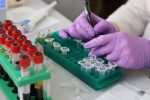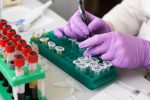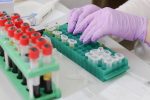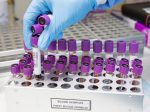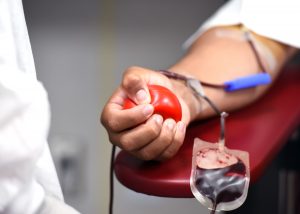
Phlebotomists play a very important role in the healthcare industry.
Before just about any medical procedure, and as part of any wellness program a physician typically orders blood work.
The drawing of blood is done by a phlebotomist.
A phlebotomist may work in hospitals, medical offices, diagnostic laboratories, blood donor centers, and many other places where blood is collected and analyzed.
According to The Bureau of Labor Statistics, the medical industry needs phlebotomists.
The bureau states that the need for phlebotomists will rise 22% from 2020 to 2030, which is considerably faster than most occupations.
Further, about 19,500 openings for phlebotomists will be needed each year to handle the increased need for medical personnel.
With the average age of Americans growing and many baby boomers are entering middle-age or older, the need for jobs in the medical industry is expected to increase.
With the onset of COVID-19, more people have gotten ill in the last several years, which has put an additional strain on hospitals, medical facilities, and the patients they serve.
Page Navigation
Pros of Being a Phlebotomist
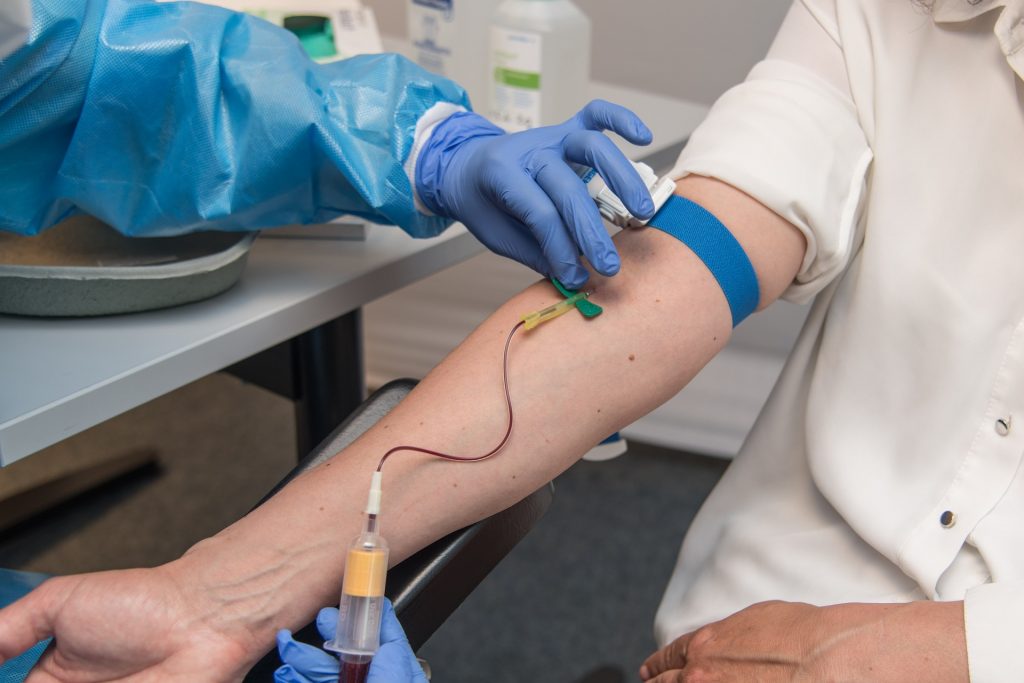
There are many reasons why people become phlebotomists.
Many want an entrée into the medical field to see if this is something they want to make a career of, and this is a fast and inexpensive way to get a foot in the door and explore medicine as a career.
Others want to do something positive for others and see phlebotomy as a great way to achieve it.
Here are some of the positives that those in the medical field find when they decide to pursue a career in phlebotomy:
Income Security
Those in the medical field, including phlebotomists, are in need, so they are assured of steady income as long as they are good at their job.
On average, the hourly rate for a phlebotomist is around $17.07 per hour; this comes to $35,510 a year.
Flexible Work Hours
One of the big benefits of choosing a career in phlebotomy is their flexible schedule.
They are often called to work long days but work fewer days per week.
This enables phlebotomists to work and still have personal time.
Short Training Program
Most programs can be completed in between four to eight months.
Some as short as six to eight weeks.
Because of its short training time, many that want to begin their careers in the medical field become a phlebotomist as a way to start their career.
Many continue their education and earn other degrees in the healthcare industry.
Affordable Training Programs
Compared to other medical degrees, the training cost to be a phlebotomist is considered low.
The cost can range from $300 to around $1,500 for a training program.
Variety of Career Settings
Those that are phlebotomists have a wide range of locations where they can practice their bloodwork skills.
Phlebotomists often work in hospitals, labs, private practices, clinics, The American Red Cross, nursing homes, VA clinics, emergency centers, community health centers, prisons, drug treatments centers, and volunteer work.
Good Career Choice
Becoming a phlebotomist offers a good opportunity to begin a career in the medical field.
Those that are good at their job should have no problem finding a job.
So having a job as a phlebotomist will earn a solid income in a stable work environment.
Provide a Much-needed Service to Those That Are Ill
Blood testing is a critical part of diagnosing and treating illnesses.
Those that want to give back to others, often choose phlebotomy to help those that are ill or to maintain good health.
Cons of Being A phlebotomist
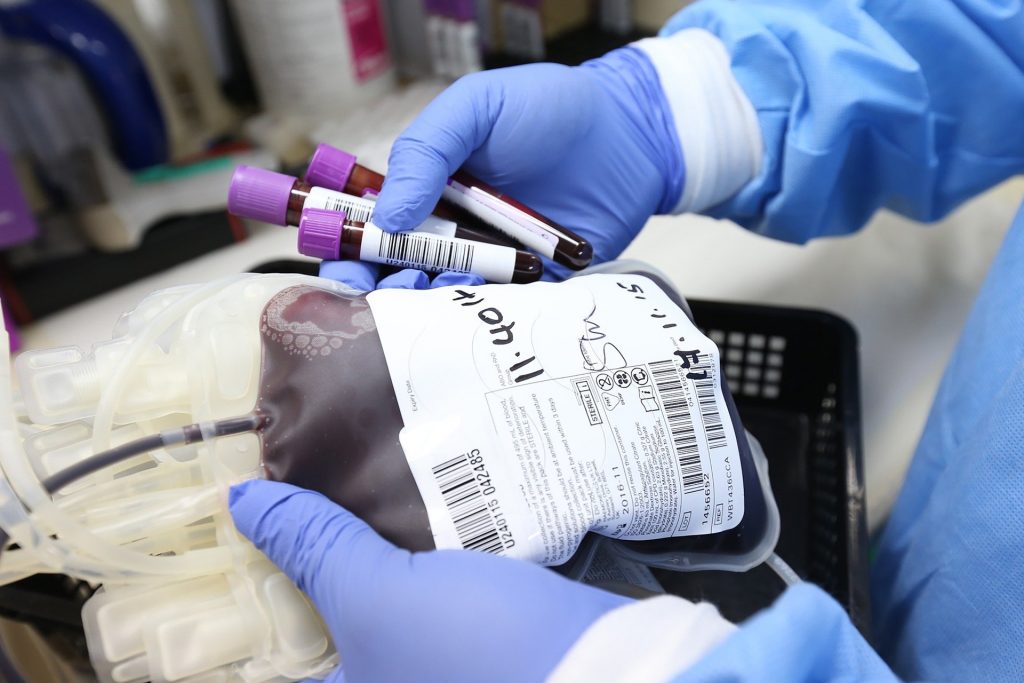
No job is perfect, so those that are considering entering the medical field as a phlebotomist need to be aware of some of the negatives that go along with the job.
Here are some tips to consider before becoming a phlebotomist.
Career Burnout
Just like many other careers, there can be career burnout in a position as a phlebotomist.
Day after day a phlebotomist draws blood from a variety of different people.
They will only be seen for a short amount of time, so the phlebotomist does their job and moves the patient along to the next healthcare professional.
Risk of Infection Transmission
While all medical facilities do their best to reduce the incidence of transmission of infection and diseases, they can occur.
Some common diseases include influenza, conjunctivitis, TB, chickenpox, upper respiratory infections, measles, hepatitis B or C, scabies, lice, and more.
Stressful Environment
Depending on where the phlebotomist practices, there may be stressful situations.
This is especially prevalent when working in emergencies and trauma centers.
It is also fast-paced with no room for error.
Long Work Hours
Many of those in the healthcare industry work long hours, often because there is a need for more medical professionals.
Many works between 8-12 hours a day; they often are called to work holidays, nights, and a combination of day and night shifts.
Drawing Blood on Children
Seeing sick children can be difficult.
They often are frightened of needles.
They can be difficult patients as they may have a fear of you and the needle and may have a difficult time sitting still.
Plus, those that love children, may have a hard time seeing them in pain or frightened.
Patient Injuries
While this is relatively rare, patients can be injured while drawing blood.
Rarely, this can lead to lawsuits.
Angry, Rude People
Most people do not like getting stuck with a needle or having blood drawn.
This can especially be true for older people that are suffering from dementia or Alzheimer’s and don’t understand the process.
Should You Become A Phlebotomist?
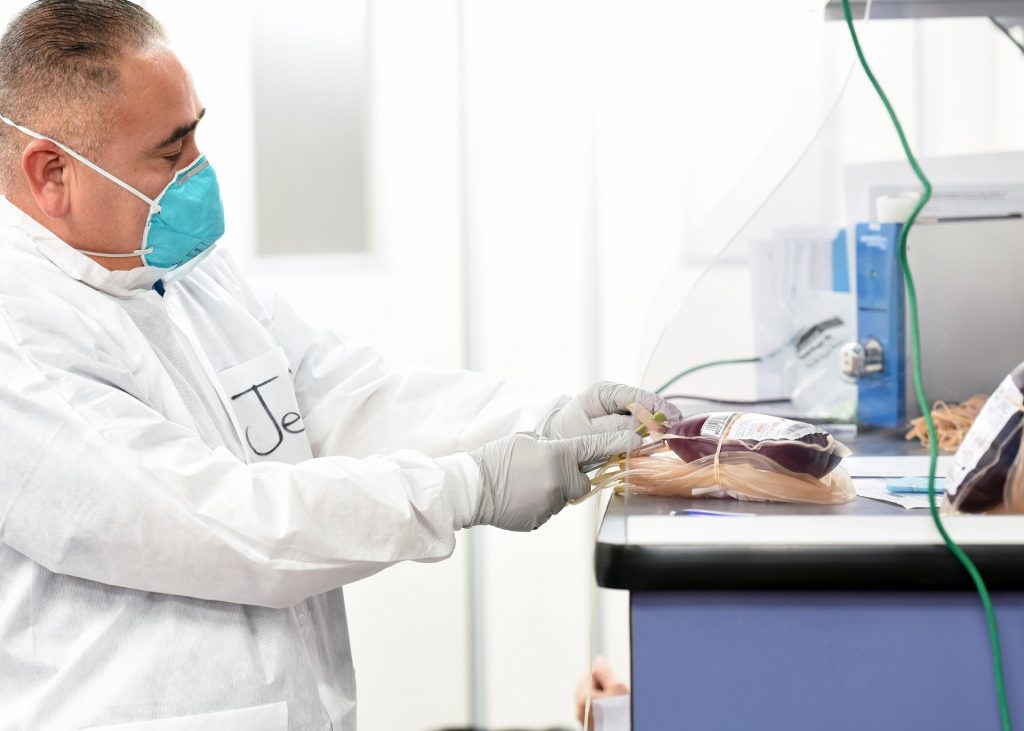
If you want to enter the medical profession, and you don’t have a problem with blood, this may be a great career for you.
After all, the blood drawn is needed for diagnostic tests that can determine illness and disease in a variety of settings.
Those that choose this career path need to have great precision as no one wants to hear that their phlebotomist say can’t find a good vein to draw from.
Locating a healthy vein, taking the blood draw, and sending it to the lab for diagnostics is critical for those that are looking for answers for their maladies.
Many find that phlebotomy programs are short and affordable when compared to other medical positions.
Being in the healthcare environment as a phlebotomist can also lead to an interest in other medical positions.
It can also open doors for other jobs within the healthcare industry that would pay at a higher pay scale.
The medical industry is constantly growing and the need for medical workers is steadily increasing throughout the healthcare industry.
In the U.S. our residents are getting older and more of them need medical care.
This is only going to increase.
As the medical field prepared for the onslaught of the COVID-19 pandemic, the need has grown exponentially.
More people have had to be admitted into hospitals for care, and each of those people has had to have their blood drawn.
This is critical because so many people that are entering hospitals and healthcare facilities also have other healthcare issues that could be transmitted unless certain procedures are put in place.
Those that are considering a career as a phlebotomist need to consider these benefits:
- Secure job
- Potential for growth
- Fast licensing
- Short training programs
- An affordable way to get into the medical field
- A wide range of facilities to work at
- Help those that are ill
Becoming a phlebotomist is a very important job and one that is in demand at just about any healthcare facility across the U.S.
Those serious about starting their career should look online for some of the programs in their area.
In a matter of less than a year, an individual can be taking a training program, get certified, and begin their career working in the medical industry.
This may be a great career for you.
After all, the blood drawn is needed for diagnostic tests that can determine illnesses and diseases in a variety of medical settings.
Those that choose this career path need to have great precision as no one wants to hear that their phlebotomist say can’t find a good vein to draw from.
Locating a healthy vein, taking the blood draw, and sending it to the lab for diagnostics is critical for those that are looking for answers for their maladies.
Many find that phlebotomy programs are short and affordable when compared to other medical positions.
Being in the healthcare environment as a phlebotomist can also lead to an interest in other medical positions.
It can also open doors for other jobs within the healthcare industry that would pay at a higher pay scale.
Pros and Cons of Being a Phlebotomist Summary Table
| Pros of Being a Phlebotomist | Cons of Being a Phlebotomist |
|---|---|
| Income security | Career burnout |
| Flexible work hours | Risk of infection transmission |
| Short training program | Stressful environment |
| Affordable training programs | Long work hours |
| Variety of career settings | Drawing blood on children |
| Good career choice | Patient injuries |
| Provide a much-needed service to those that are ill | Angry, rude people |
